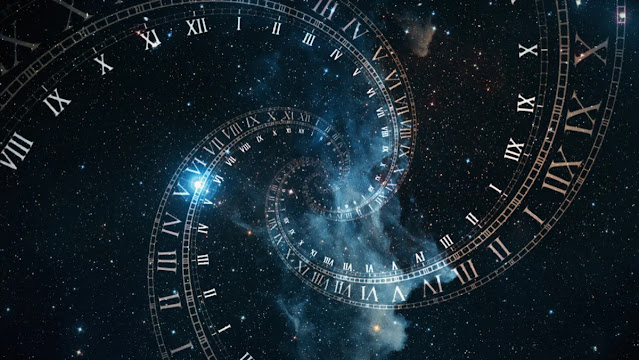What exactly is causation? Let’s begin with the well-known proverb, “Correlation does not imply causation.” Not all correlations are causal, though. What’s the distinction?
Take two as an example. (1) We can learn about the weather by gazing at the barometer since the barometer needle and the weather are correlated. However, nobody believes that the weather is being caused by the barometer needle. (2) A higher heart rate is associated with drinking strong coffee. Here, it appears appropriate to infer that the first contributed to the second.
The difference is that the weather won’t change if we “wiggle” the barometer needle. They are related because a third factor, atmospheric pressure, governs both the weather and the barometer needle. The correlation disappears when we take direct control of the needle, severing its connection to air pressure.
However, if we step in to alter someone’s coffee consumption, we typically alter their heart rate as well. The correlations that remain true when we move one of the variables are known as causal correlations.
These days, “causal discovery” is the term used to describe the science of seeking out these strong relationships. Finding out what else happens when we move objects around us is a huge term for a simple idea.
In everyday life, we typically assume that a wiggle’s consequences will manifest themselves after the wiggle itself. We don’t even realize we’re making this assumption because it comes so naturally to us.
However, there is no requirement for this in the scientific method, and it is easily ignored in fantasy literature. Similarly, some religions teach us to pray that our loved ones, like, are among those who survived the shipwreck from yesterday. We’re assuming that what we do today will have an impact on something tomorrow. Retrocausality is that.
Quantum retrocausality
The notion that distant objects need a physical intermediary to interact, which is the source of the quantum challenge to the locality, was put forth by Northern Irish physicist John Bell in the 1960s. Bell thought about experiments in which Alice and Bob, two fictitious physicists, get particles from the same source. Each selects a measurement setting from a variety of options before recording a measurement result. The experiment produces a list of outcomes when it is repeated numerous times.
Bell recognized that odd correlations in this data were predicted by quantum physics and have since been found to exist. They seemed to imply that, despite the fact that Alice and Bob might live on opposite sides of the universe, Alice’s choice of setting has a subtle “nonlocal” impact on Bob’s outcome and vice versa. Bell’s claim is that Albert Einstein’s special relativity theory, a foundational concept in contemporary physics, is in jeopardy.
However, Bell made the assumption that quantum particles are unaware of the measurements they will face in the future. Retrocausal theories state that the measurements made by Alice and Bob have an impact on the particles back at the source. Without defying special relativity, this can explain the odd relationships.
We recently put out a straightforward explanation for the puzzling correlation, one that incorporates the well-known statistical phenomenon known as Berkson’s bias (see our popular summary here).
A strong community of academics is now studying quantum retrocausality. However, some specialists in the broader field continue to be blind to it. An alternative viewpoint known as “superdeterminism” causes confusion about it.
Superdeterminism
Retrocausality and superdeterminism both concur that there is a relationship between measurement decisions and the fundamental characteristics of the particles.
Superdeterminism, however, treats it similarly to the relationship between the barometer needle and the weather. It makes the assumption that there is a mysterious third entity, referred to as a “superdeterminer,” which governs and correlates both our decisions and the particles in a similar manner to how atmospheric pressure governs both the weather and the barometer.
Superdeterminism rejects the idea that we can freely alter our measurement decisions since they are predestined. Similar to the barometer scenario, free wiggles would cause the correlation to break. Superdeterminism, say its detractors, undermines fundamental presumptions required for conducting scientific research. Additionally, they claim that it implies denying free will because both measurement options and particle behavior are under the authority of some entity.
These arguments against retrocausality are unfounded. Retrocausalists do scientific causal analysis in the typical unstructured, sloppy manner. If people refuse to follow the evidence where it points, we claim that they are ignoring the scientific process. This is because they reject retrocausality.
Evidence
What is the retrocausality evidence? Critics demand experimental proof, but that’s simple because the pertinent experiments recently received a Nobel Prize. Providing evidence that retrocausality provides the best explanation for these observations is the difficult part.
The possibility of eliminating the danger to Einstein’s special theory of relativity has been discussed. In our opinion, that’s a rather significant hint, therefore it’s remarkable it’s taken this long to be investigated. It appears that uncertainty over superdeterminism is mostly to fault.
Furthermore, we and others have argued that retrocausality better explains the fact that the microworld of particles is unconcerned with the distinction between the past and the future.
We don’t mean to imply that everything will be easy. The major concern with retrocausation is the potential for transmitting messages into the past, which could lead to time travel paradoxes. But in order to create a contradiction, the impact of the past must be quantified. There is no paradox if our young grandmother cannot read our warning to stay away from Grandpa, which would mean we would not have been born. Furthermore, it is common knowledge that we can never measure everything at once in the quantum scenario.
The development of practical retrocausal models that uphold the limitation that you can’t measure everything at once still needs to be done. So let’s end with a circumspect judgment. Retrocausality currently has the upper hand, so focus on preventing “death by experiment” for locality and realism as you head for the largest prize of all.



